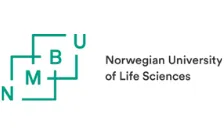Implementation of massively parallel sequencing technology in kinship
Traditional forensic DNA methodologies can prove insufficient when dealing with complex kinship cases and challenging forensic samples. Work carried out in this project explores the improvements that can be made to complex kinship investigations through the use of massively parallel sequencing (MPS) technology to concurrently analyse a multitude of different genetic marker types, and the implications that genetic linkage has on this process. In addition, it focuses on how MPS technology can be implemented in forensic casework laboratories, including work to define new international STR nomenclature standards.
The project focuses on kinship testing, which is the process by which we can use inherited DNA shared between individuals to work out how/if they are related, for example, are two individuals related as first cousins or are they unrelated. Traditionally this type of analysis is carried out using short tandem repeat (STR) markers coupled with capillary electrophoresis, which uses the size of the DNA fragment to assign an allele number. The advent of MPS technology means that we can now easily assess these same markers by sequencing rather than using the blunter option of determining their size. We know from previous work that this sequencing analysis improves the discrimination we can get with some of these STR markers, as well as allowing us to test more DNA markers at the same time. In this project, we are assessing in detail how this sequencing approach can affect the strength of evidence in kinship case analysis, as well as determining how much improvement, if any, is gained from analysing the flanking region sequence in addition to the STR repeat region sequence.
We will use population data developed in the other projects from this group to simulate different relationship scenarios and assess how the strength of evidence changes depending on the type, combination and sequence status of the markers. Additionally, the project will explore whether there are significant advantages to be gained by designing a panel of ‘multi-allelic’ markers rather than using the more common bi-allelic SNPs: in this case, by ‘multi-allelic’ we mean SNPs with more than 2 alleles or microhaplotypes (multiple SNPs located very close together).
Aims
- To investigate how sequence variation at forensically relevant STR and SNP markers can aid complex kinship investigations.
- To explore the impact of genetic linkage when applying these forensic markers to kinship cases.
PhD Students
|
PhD Student |
|
|
PhD Student |
Our Partners

Norwegian University of Life Science
Principal Investigator
Affiliations
Funding
Funding Body: DNA analysis @ King's
Amount: £25,000
Period: October 2017 - October 2023

